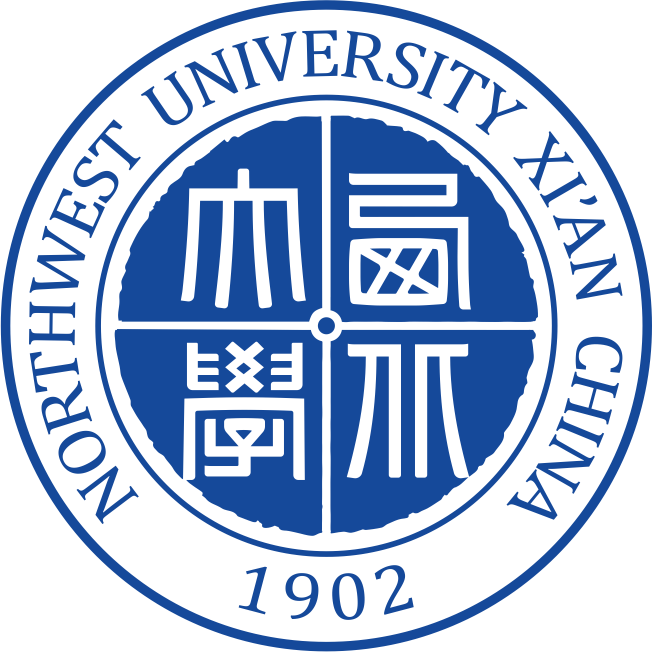 301-400
301-400 


Northwest University (NWU) can trace its origins back to Shaanxi Imperial College and Peking Imperial College in 1902. The University received its current name in 1912, and was renamed Northwest National University in 1923. With institutions such as Peking National University, Peking National Normal University and Beiyang National Engineering College, which moved inland to Shaanxi province when the War of Resistance against Japan broke out in 1937, the University merged to form Xi’an National Provisional University. It was then renamed Northwest Associated University in 1938 and regained the name Northwest National University in 1939. In the early years after the founding of the People’s Republic of China, Northwest University was a comprehensive university under the direct jurisdiction of the Ministry of Education. In 1958, NWU came to the administration of Shaanxi province. In 1978, NWU was designated as one of the national key universities. Currently, NWU is under the joint administration of the Ministry of Education and Shaanxi province. NWU has been selected as one of the leading universities sponsored by the national “211 Project”. It also enjoys national support from the “One University for One Province Initiative”. For over 110 years, following its vision of “promoting the national spirit, integrating the ideas from around the world and shouldering the responsibility of developing northwest China” and its motto of “Fairness, Integrity, Diligence and Simplicity”, NWU has strived for excellence in the face of difficulties and challenges. Through unremitting efforts, NWU has attracted a generous number of distinguished scholars, cultivated generations of talents, and made a series of significant academic achievements. NWU has also developed the academic mindset of being rooted in northwest China with a global view and creating new knowledge while inheriting past civilizations. In addition, it has fostered a talent education philosophy which helps students to develop cultural ideals, integrative learning abilities and the courage to achieve as much as possible in the future. NWU has 3 campuses: the Taibai Campus, the Taoyuan Campus and the Chang’an Campus. They cover a total area of approximately 400 acres, and comprise 22 schools and departments, plus a graduate school. In addition to 85 undergraduate degree programs, NWU has been authorized to confer master’s degrees in 39 first-tier disciplines, 8 second-tier disciplines and 16 professional programs, as well as doctoral degrees in 19 first-tier disciplines and 5 second-tier disciplines. NWU has developed 1 first-tier national key discipline (covering 5 second-tier disciplines), 4 second-tier national key disciplines, 1 national key discipline under cultivation and 22 post-doctoral programs. Moreover, NWU houses 1 national key laboratory, 1 national research center for engineering & technology, 1 national base for international scientific & technological cooperation, 29 provincial (ministerial) key labs, research centers for engineering & technology, and key research bases for the humanities & social sciences, 6 national experimental teaching demonstration centers, 7 national bases for talent cultivation, and 1 national base for the cultural quality education of college students. NWU has about 2,500 members of faculty and staff, including 2 academicians of the Chinese Academy of Sciences, 8 distinguished (or chair) professors of “the Cheung Kong Scholars Program”, and 7 winners of China National Funds for Distinguished Young Scientists. NWU also boasts 40 National and Provincial Experts with Outstanding Contributions, 6 Innovation Teams of the Ministry of Education, 4 Nationally Distinguished Teachers, and 5 Nationally Distinguished Teaching Teams. Currently NWU has a student population of over 25,000 including 6,000 graduate students and 700 international students. NWU has 10 foreign research and academic experts , 25 full-time foreign teachers and 60 short-term high-level foreign experts. Since the founding of the People’s Republic of China, NWU has educated over 200,000 professional talents across different disciplines. Most of them have developed into the professional, academic and administrative backbone of the nation, fulfilling leading roles in different regions and sectors. NWU has been honored as “the Mother of Chinese Petroleum Engineering,” “the Cradle of Economists” and “the Cradle of Writers.” NWU is among the first group of pilot universities entitled to train officer candidates for the Chinese People’s Liberation Army. Each year NWU undertakes over 100 research projects of national importance, including “the 973 Project,” “the 863 Project,” national major scientific and technological projects, and the projects of the National Natural Sciences Foundation of China. To date, NWU has won a number of major scientific research awards, including the National Natural Sciences Awards (the first and second prizes), the National Technological Invention Awards (the second prize), the National Scientific & Technological Progress Awards (the second prize), and the Cheung Kong Scholars Achievement Awards (first prize). NWU attaches great importance to international exchange and cooperation, and has established collaborative relations with more than 100 institutions of higher learning and research in more than 20 foreign countries, including USA, UK, France, Germany and Japan, as well as regions such as Hong Kong and Taiwan. To its credit, NWU is listed as one of the leading universities in the world by the Encyclopedia Britannica
 301-400
301-400 
| Subject | Rank |
|---|---|
Earth Sciences | 76-100 |
Chemical Engineering | 101-150 |
Food Science & Technology | 151-200 |
Chemistry | 201-300 |
Instruments Science & Technology | 201-300 |
Biomedical Engineering | 201-300 |
Nanoscience & Nanotechnology | 201-300 |
Materials Science & Engineering | 301-400 |